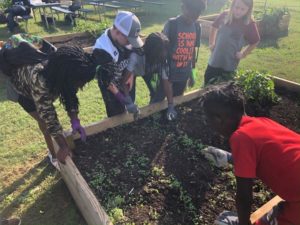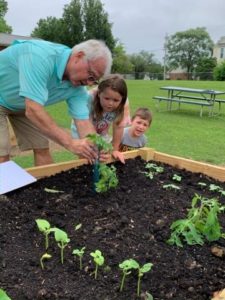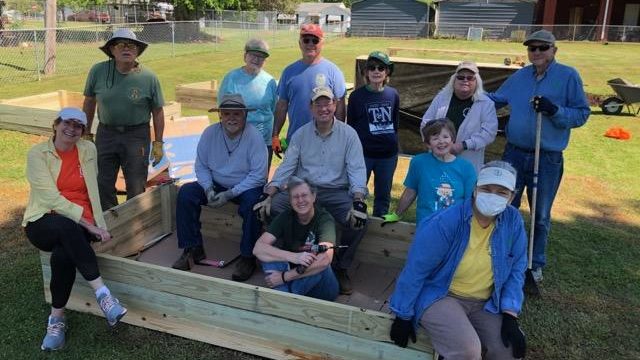When asked if he is on staff at Calvary Baptist Church in Tuscumbia, Alan Nix is quick to say, “I’m just a regular member of the church.”
This is a humble response from the man who initiated a gardening program for students at Calvary Learning Center’s summer camp.

In its second year, the program has seen great success.
Nix said it began as a result of his membership in the Colbert County Master Gardeners Club, which encourages participants to “find meaningful educational activities to participate with, within the mission of the Alabama Cooperative Extension Service.”
Learning from the source
He remembers as a child being basically forced to help in the garden. At the time he didn’t appreciate it, but now he’s “very grateful for that,” as well as the things he has learned as a master gardener. He believes “these kids need to learn about gardening and where their fruits and vegetables come from.”
The idea for having a garden with the students at Calvary Learning Center had to be approved by a committee associated with the Master Gardener program, Nix noted. He credits Lucy Edwards, former regional director for the Alabama Cooperative Extension Service, covering both Colbert and Lauderdale Master Gardener Programs, for her willingness to participate.
In a Colbert County Reporter article dated May 28, 2021, she is quoted as saying, “This is a program that is dear to my heart.”
When they were getting started, multiple master gardeners jumped in to help with the project. They had fun and served God at the same time, helping “build raised beds for the older students … while providing smaller containers for the little ones. With these, the children learned to water [and remove weeds and bugs from] the soil.”

The fruit of their own labor
One of the first gardening lessons involves considering the parts of a hamburger, the buns and everything that goes between them, “tying each part back to the ground,” Nix said. “Even the meat that comes from the cow that eats the grain and the corn that grows from the ground.”
In another lesson the students “learn how to do a worm bed, as well as the importance of the worms to the soil for growing food,” Nix noted.
Midway through the second year of the 8- to 9-week camp, he said the children “get really excited about picking tomatoes, carrots, radishes, peppers, peas, lettuce and okra, some of which they get to take home. They also plant sunflowers and varied other plants.”
As part of the fun, daily snacks consist of items from the garden the children planted, allowing them to have the satisfaction of eating the fruit of their own labor.
Nix said that “from the beginning, one of the goals of those helping teach the children in the day camp includes always being careful to try to tie it back to how God provides for it.”






Share with others: